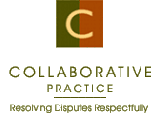Mediation is a process for resolving disputes between two people through meeting and discussing their issues with the assistance of a neutral mediator. It can be used to resolve any family law dispute. The mediator helps the parties who are in a family law dispute arrive at solutions that will work for both people. The mediator does not make the decisions. The parties have the power to make their own joint decisions, regardless of what the law may provide or how a judge may rule.
The mediator facilitates the disclosure of all relevant information, helps each person articulate their goals and needs, organizes the discussion of options, provides resource information and referrals to needed experts, explains the law, facilitates selecting the best resolution for both parties, and prepares the final settlement agreement.
Ms. Marx is trained and experienced in mediation and has served as the mediator in many family law cases, covering all aspects of family law.
In-depth issues related to child custody are generally referred to a mediator trained as a clinical psychologist.
The mediation process is confidential – nothing said in mediation can be used by either party during litigation, in the event that mediation is terminated.

